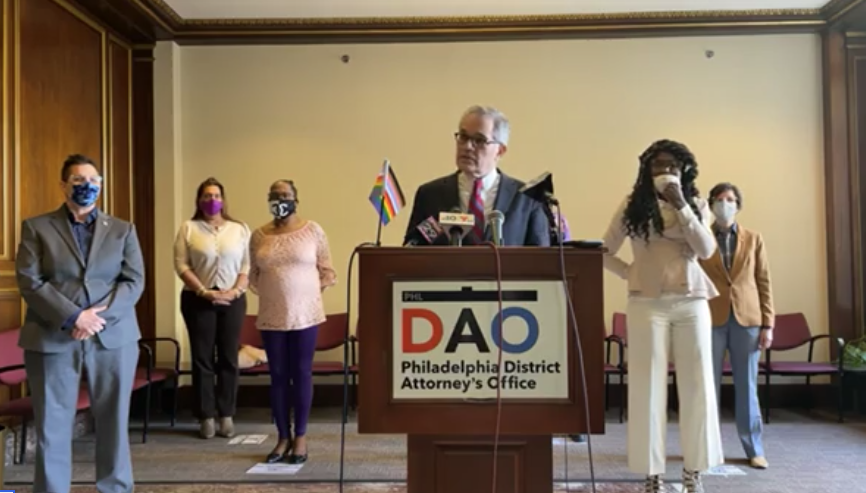RCFP helps Philadelphia Gay News reporter access information about LGBTQ+ advisory committee

Last March, the Philadelphia district attorney’s office announced that it would create an advisory committee to provide information and resources to protect the local LGBTQ+ community.
The announcement, which came ahead of the International Transgender Day of Visibility, was big news for the LGBTQ+ community, members of which had been targeted by what some have called an “epidemic of violence.” It was also big news for the Philadelphia Gay News, the city’s oldest publication covering LGBTQ+ issues, and reporter Tim Cwiek, a writer for the paper since the 1970s.
But when Cwiek reached out to the district attorney’s office last December to learn the names of the 18 members appointed to the advisory committee, officials refused to provide them. A spokesperson for District Attorney Larry Krasner told Cwiek that the names were being withheld at the request of committee members. With the committee already meeting, though, Cwiek thought it was important to make the members’ names public.
“I just felt that people had a right to know who was advising Larry Krasner,” Cwiek said.
Cwiek wanted to know if there was legal precedent for making the committee members’ names public. So he reached out to the Pennsylvania Office of Open Records, which handles public records appeals, looking for similar cases involving other government committees.
After the agency’s search came up empty, Cwiek contacted Paula Knudsen Burke, the Reporters Committee’s Local Legal Initiative attorney in Pennsylvania. Burke was able to find a previous case in which the OOR ruled in favor of releasing the names of members of a government allocations committee that advised the city on AIDS funding.
“I give Paula a lot of kudos and credit for helping me find that case,” Cwiek said.
In addition to finding a precedential case, Burke also publicly expressed the importance of accessing committee membership information, comments that Cwiek ended up including in an article he published last December.
“Citizens serving on government advisory boards are helping to shape public policy,” Burke said. “Our state’s open meeting and records laws mandate that the public has access to what transpires at government agency meetings, as well as at meetings of the committees that render advice to those bodies. This includes the membership of the committee members.”
Cwiek said his story helped the district attorney’s office see that it was not acting appropriately. And in January, the district attorney’s office provided Cwiek with names and short biographies of committee members, which he was then able to share in an article published on Jan. 21.
Cwiek said the process of trying to access records showed him that reporters shouldn’t give up when an agency refuses to turn over information.
“You don’t have to just accept what an agency says and accept ‘no’ as an answer,” Cwiek said. “You can reach out to the Reporters Committee and see if there are some viable options.”
Cwiek recommends taking advantage of the Reporters Committee’s free legal hotline, a service that journalists can turn to when they need legal support.
“I can’t thank [the Reporters Committee] enough,” he said. “Any journalist who needs legal advice or assistance … should feel free to contact the legal hotline of the Reporters Committee because I think it could be a great service to them.”
For more information about when journalists and media lawyers should use the legal hotline — and what they should expect when they do — check out this Reporters Committee blog post.
This work was made possible by the Facebook Journalism Project and other donors.